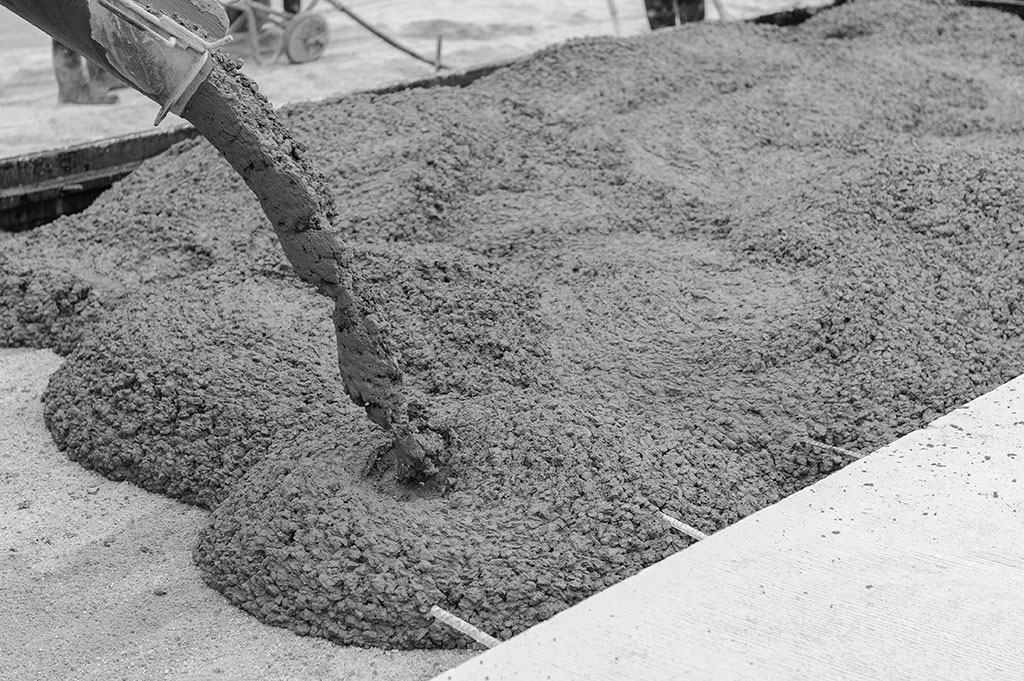Concrete Repair Work and Maintenance: Keep Your Structures Strong and Long-Lasting
Concrete Repair Work and Maintenance: Keep Your Structures Strong and Long-Lasting
Blog Article
Unveiling the Eco-Friendly Advantages of Using Recycled Concrete in Lasting Construction Practices
In the world of sustainable building and construction methods, the utilization of recycled concrete stands as an essential yet often undervalued resource. Past its conventional applications, recycled concrete offers a myriad of eco-friendly advantages that prolong far beyond the boundaries of typical construction products.
Ecological Advantages
Undoubtedly, one of the most significant advantages of utilizing recycled concrete is its favorable influence on the setting. By incorporating recycled concrete into building methods, there is a substantial reduction in the need for new resources, leading to conservation of natural deposits. This procedure helps in maintaining accumulations, water, and energy that would certainly have been used in creating brand-new concrete. Additionally, using recycled concrete diminishes the quantity of waste being sent to landfills, thus reducing ecological pollution and alleviating the stress on land fill capabilities.

In comparison, recycled concrete has a reduced carbon impact as it decreases the need for new concrete production. On the whole, the ecological benefits of using recycled concrete are substantial and play a critical duty in promoting environmentally friendly building methods.
Cost-Efficiency
Attaining cost-efficiency is a critical factor to consider when analyzing the use of recycled concrete in building and construction jobs. Among the essential advantages of using recycled concrete is its cost-effectiveness contrasted to typical concrete. The production of recycled concrete entails less power and sources as it utilizes existing products, decreasing the total task prices dramatically. In addition, the schedule of recycled concrete locally can additionally reduce transport expenses, making it an extra economical selection for building tasks.
In addition, making use of recycled concrete can cause cost savings in garbage dump prices by diverting concrete waste from disposal sites. This not only decreases the ecological impact however additionally gets rid of the costs related to waste removal. Furthermore, the toughness and performance of recycled concrete are equivalent to conventional concrete, making certain that cost savings do not endanger the high quality of the construction.
Toughness and Strength
Recycled concrete offers comparable, if not premium, longevity and stamina residential properties to conventional concrete - Concrete. With improvements in handling strategies and high quality control, recycled concrete can satisfy or go beyond the performance requirements of traditional concrete.

Waste Reduction
Effective waste reduction methods play an essential function in the lasting utilization of resources within the construction market. When it involves using recycled concrete, waste reduction is an essential benefit that adds considerably to environmental preservation. Typical construction methods often generate considerable amounts of waste, specifically in the kind of concrete rubble from demolition websites. By including recycled concrete right into building and construction jobs, this waste is repurposed and drawn away from garbage dumps, minimizing the general ecological effect of building activities.
Additionally, the usage of recycled concrete can lead to set you back savings for building and construction projects, as it is frequently a lot more affordable than sourcing and transporting new products - Concrete. In conclusion, waste decrease via the application of recycled concrete is an essential part of lasting building practices that benefits both the environment and the building market as a whole.
Power Preservation
When it comes to utilizing recycled concrete in construction, significant power financial savings are achieved contrasted to standard concrete manufacturing. The process of producing recycled concrete involves reusing and crushing existing concrete materials, which consumes less power than mining, handling, and transporting raw materials for brand-new concrete production.
Conclusion
To conclude, the usage of recycled concrete in lasting building methods supplies numerous environmental benefits, cost-efficiency, longevity, stamina, waste decrease, and power preservation. By incorporating recycled concrete into building find more jobs, we can add to a more sustainable and eco pleasant future. It is necessary for the article source building sector to focus on making use of recycled materials to help in reducing the environmental influence of building activities.
One of the key advantages of utilizing recycled concrete is its cost-effectiveness contrasted to conventional concrete.Furthermore, the usage of recycled concrete can lead to financial savings in garbage dump expenses by diverting concrete waste from disposal websites. The durability and efficiency of recycled concrete are similar to standard concrete, guaranteeing that cost savings do not endanger the top quality of the construction.
:max_bytes(150000):strip_icc()/in-depth-look-at-concrete-flooring-1314684-02-8fdb599f92a747ed94ef5b96110abfc1.jpg)
Report this page